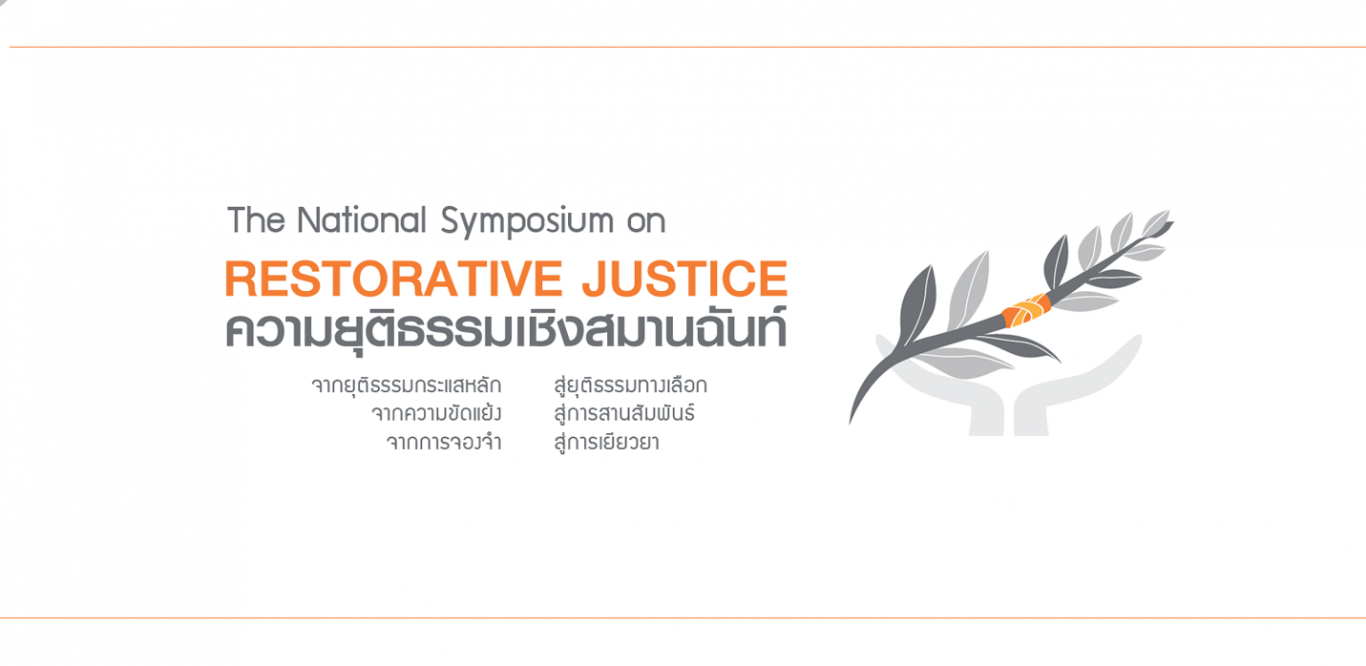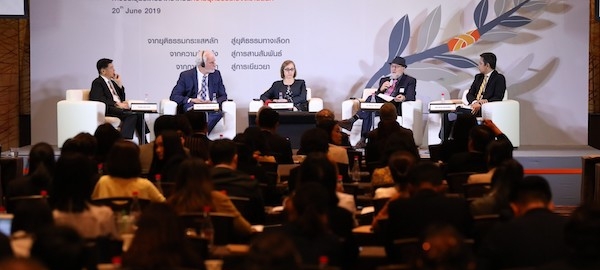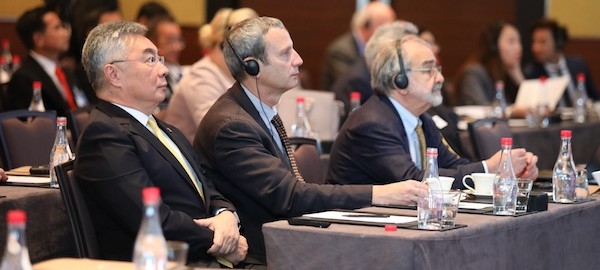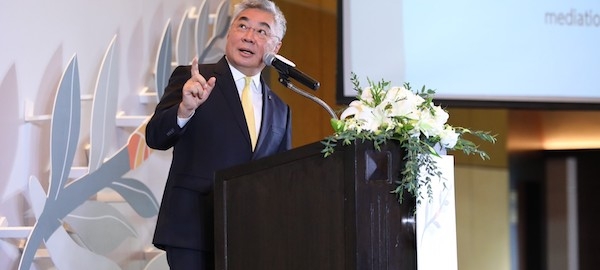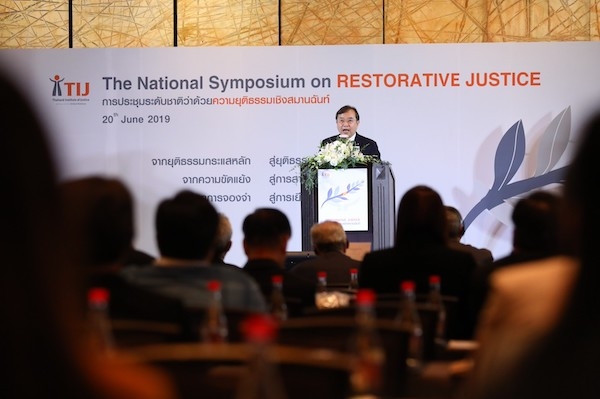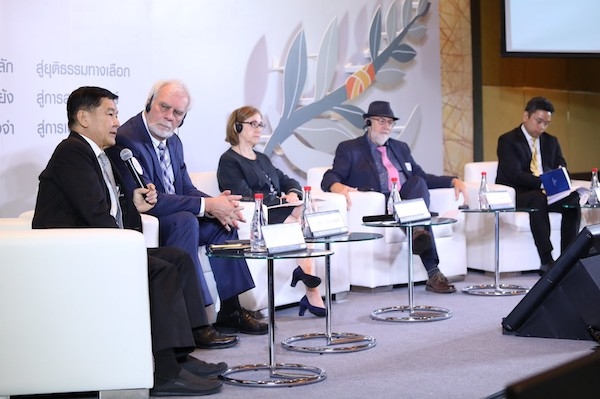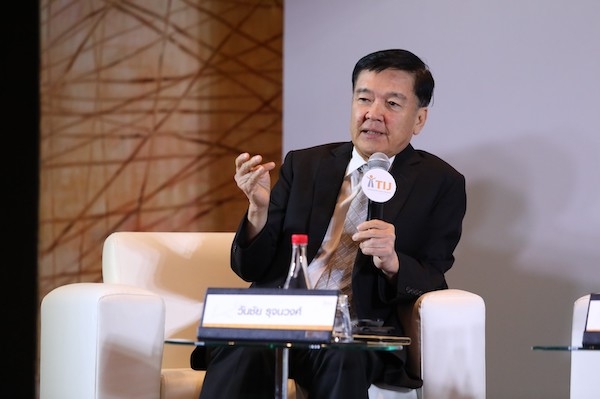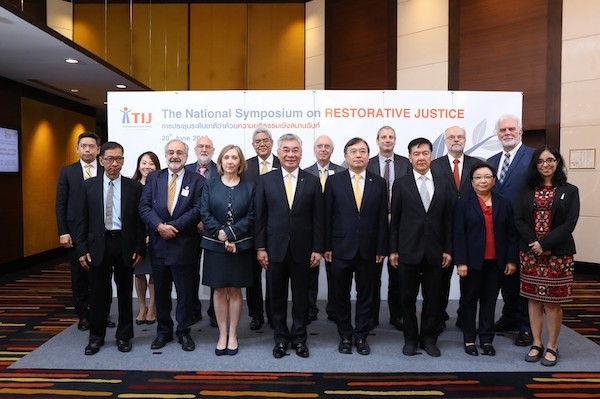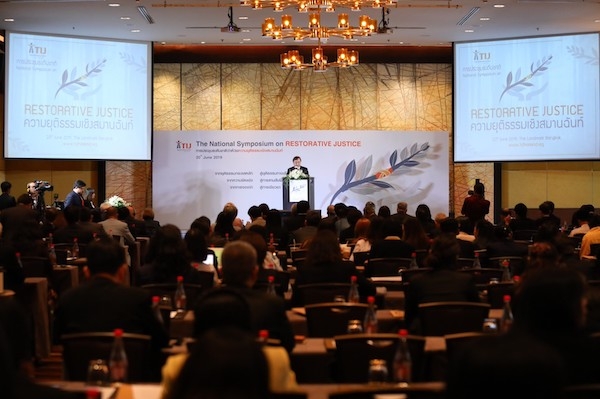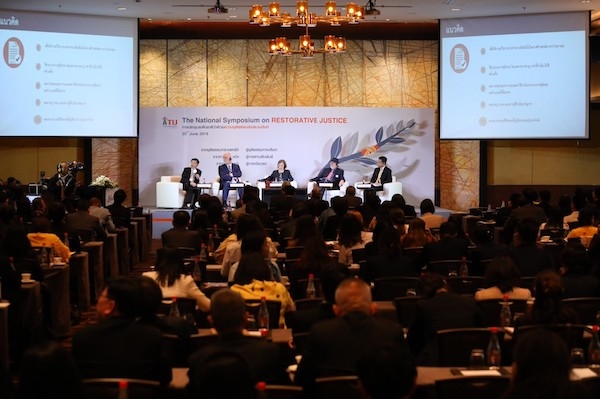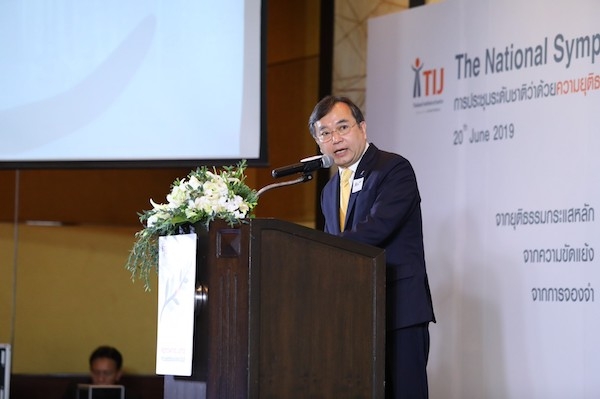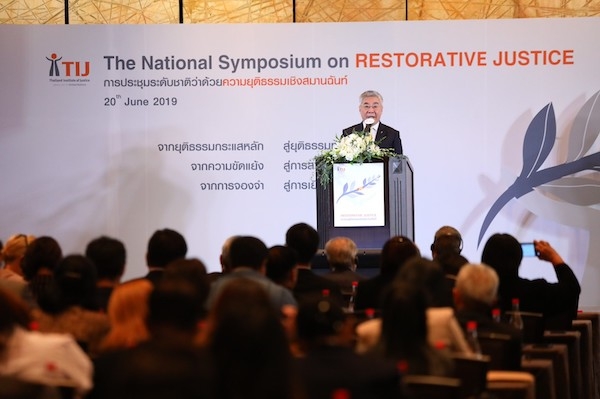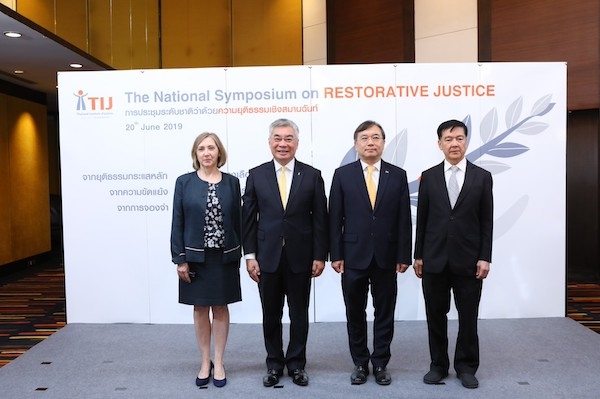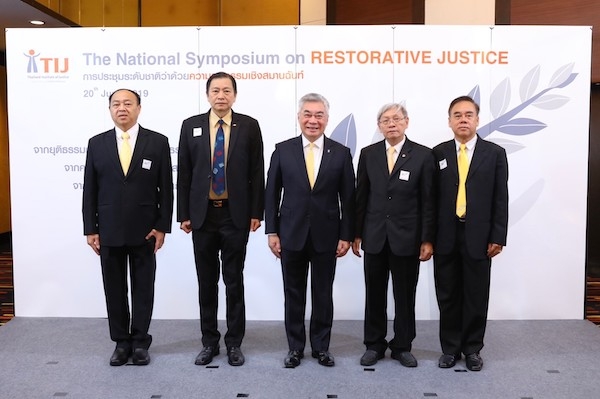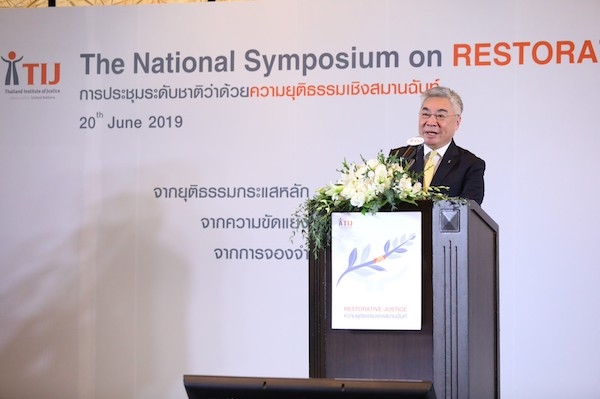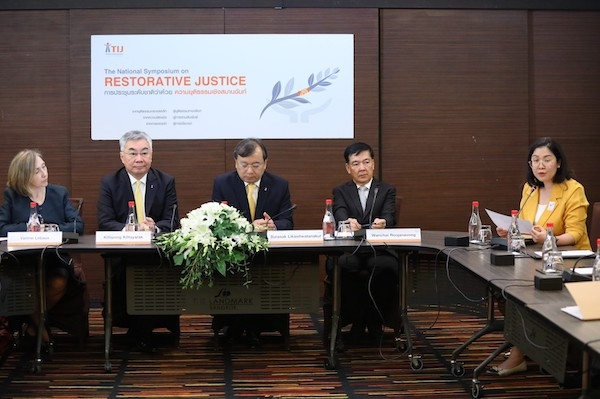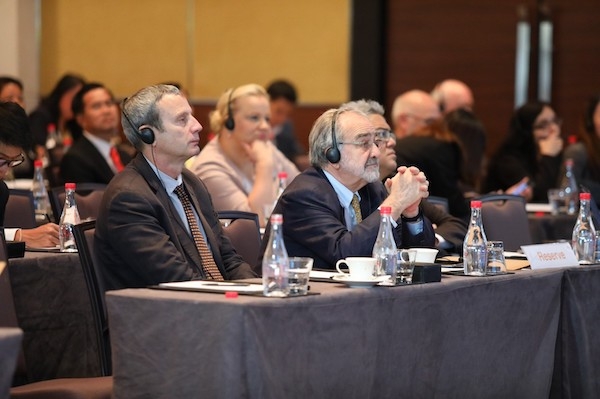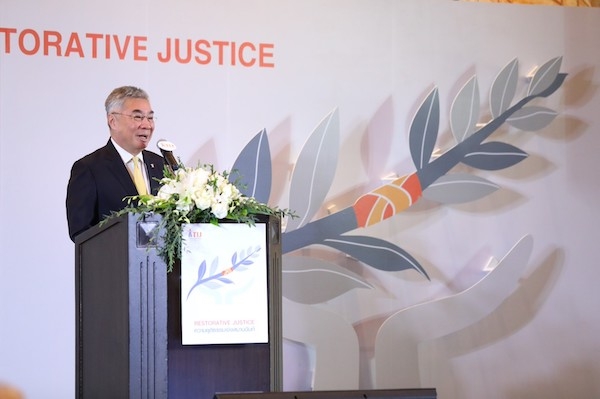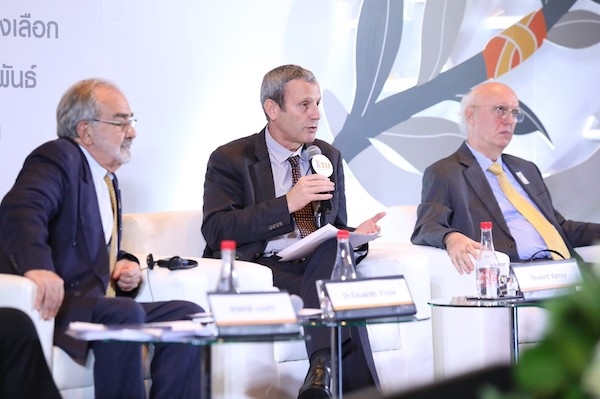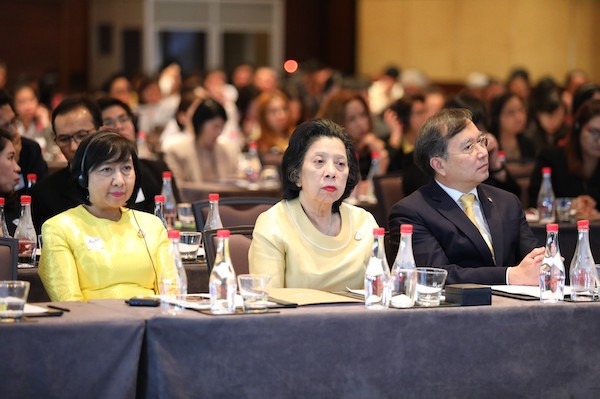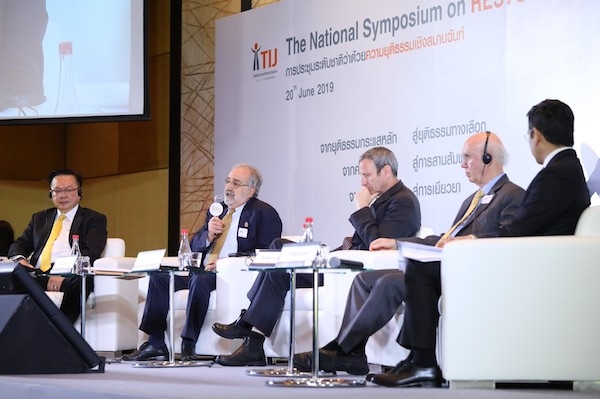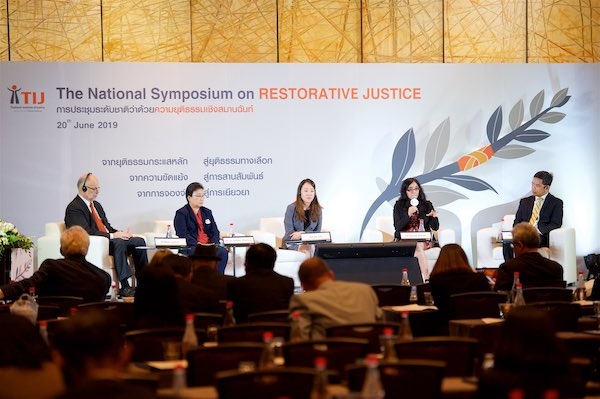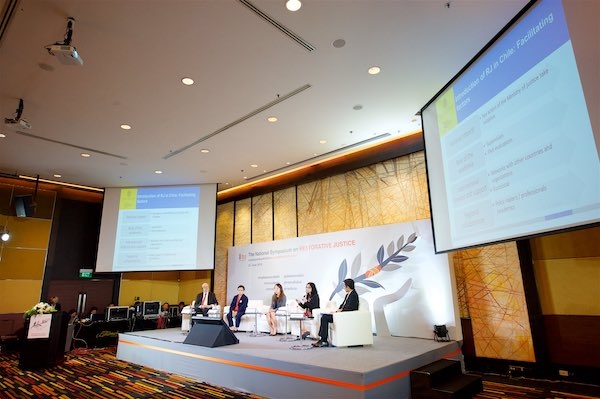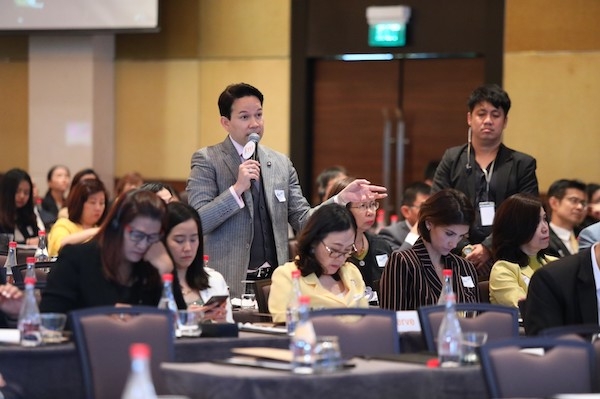The National Symposium on Restorative Justice
Thailand is facing the problem of overcrowded prisons. There are currently nearly 400,000 inmates, which exceed the capacity of the prison system. Many of these inmates are guilty of minor crimes and many of them are juveniles. As well, because the resources of the prison system cannot match the number of inmates, there’s a higher risk of reoffending. It is imperative then, that we as a society come together to build a solution towards rehabilitation and re-integration, in order to create social harmony. The solution is wider usage of restorative justice.
“The heart of the matter is to come together and create the foundation that nurtures communal trusts and enables the country to move forward,” said Prof. Dr. Kittipong Kittayarak, Executive Director of the Thailand Institute of Justice (TIJ).
As oppose of retributive justice, where punishment is the goal, restorative justice is considered a positive approach to criminal justice. There’s empowerment and reparation for the victim, less chance of the perpetrator reoffending, and with community involvement, there’s more chance of creating social harmony.
As well, it is imperative that restorative justice be used in cases involving juvenile offenders in non-serious crime. It is to give youths who have made mistakes, rehabilitation and a second chance at life. Rather than incarceration as punishment and higher risk of reoffending.
While restorative justice may involve monetary compensation to the victim, first and foremost the goal is to build a consensus of understanding between the victim and the offender, and the process involves the community acting as a facilitator. In this, the offender is encouraged to take responsibility for the crime committed, to understand the dynamics that led to the crime and how the crime effects the victim. In turn, the victim is empowered to address the wrong done and become proactive in the process of reparation.
TIJ continues to drive the agenda for wider usage of restorative justice domestically and internationally, collaborating closely with the United Nations Office on Drugs and Crime (UNODC).
As part of this effort, TIJ supports the updating of UNODC Handbook on Restorative Justice Programs. On 17-19 June, TIJ will host The Expert Group Meeting to update the handbook. This is a timely opportunity to generate greater domestic awareness of restorative justice and to seek collective solutions to these challenges.
Prof. Dr. Kittipong said, “TIJ is readied to be the hub that bridges knowledge, as well as bridging between international legal frameworks and Thailand.”
Furthermore, on 20 June, TIJ will lead The National Symposium on Restorative Justice, in which more than 10 experts and 200 participants, including practitioners from criminal justice organizations, will share good practices and generate ideas for wider usage of restorative justice.
“Having good laws lead to creation of good policies. No matter what, laws and procedures are always important,” said Prof. Dr. Kittipong.
Restorative justice is a key measure in criminal justice that allows for community-based solution and greater social harmony. Therefore, it is TIJ’s mission to create a safe and peaceful society through rule of law and sustainability in building a social mindset conducive to wider acceptance and usage of restorative justice in society.
Presentations available here:
Opening Remarks by Prof. Dr. Surasak Likasitwatanakul, Chairperson of the Board, Thailand Institute of Justice
Keynote Remarks by Prof. Dr. Kittipong Kittayarak, Executive Director, Thailand Institute of Justice and Valérie Lebaux Chief, Justice Section, Division for Operations, UNODC
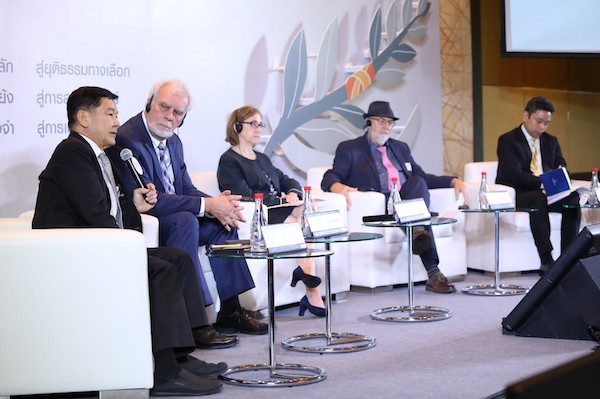
Session 1 - Restorative Justice: Understanding the Approach
Wanchai Roujanavong, Senior Public Prosecutor and Thailand’s Representative to the ACWC for Children’s Rights
Dr. Yvon Dandurand, Consultant for the Handbook on Restorative Justice Programmes; Senior Associate, International Center for Criminal Law Reform and Criminal Justice Policy (ICCLR)
Valerie Lebaux, Chief, Justice Section, Division for Operations, United Nations Office on Drugs and Crime (UNODC)
Dr. Brian Steels, Director, Institute for Restorative Justice and Penal Reform, Patron of the Asia Pacific Forum for Restorative Justice
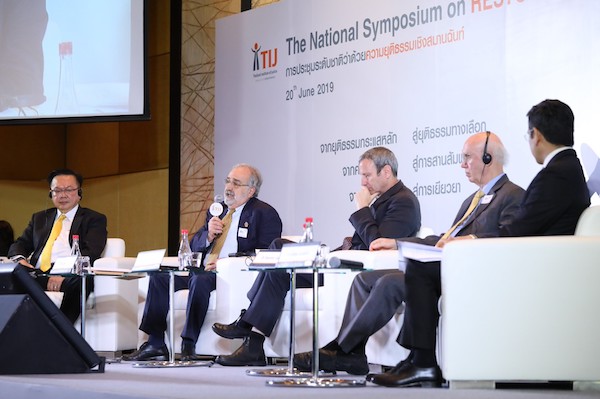
Session 2 - From Principles to Practice: Implementing Restorative Justice Programmes
Mr. Sittisak Wanachagit, Chief Justice of the Central Juvenile and Family Court
Dr. Eduardo Vetere, Vice President and Secretary - General, International Association of Anti-Corruption Authorities (IAACA)
Mr. Howard Varney , Independent Cousultant, Human Rights Lawyer and Transitional Justice Expert
Dr. Sandro Calvani, Senior Advisor on Strategic Planning, Mae Fah Luang Foundation (under Royal Patronage)

Session 3 - Sharing Good Practices on Restorative Justice: Opportunities and Challenges
Dr. Matti Joutsen, Special Advisor, Thailand Institute of Justice (TIJ)
Dr. Jutharat Ua-Amnoey, Lecturer, the Faculty of Political Science, Chulalongkorn University
Dr. Daniela Bolivar, Assistant Professor, Pontificia Universidad Catolica de Chile (UC)
Jee Aei Lee, Crime Prevention and Criminal Justice Officer, Justice Section, Division for Operations,United Nations Office on Drugs and Crime (UNODC)



